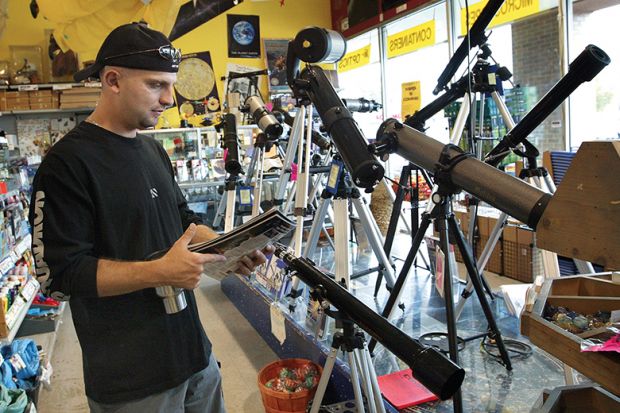Academics will be able to pay almost £2,000 to have their papers peer-reviewed for Nature-branded titles under a new scheme that may pave the way for the prestigious journal group to go fully open access.
As part of plans announced by the group’s owner, Springer Nature, researchers will be able to make any papers accepted by Nature and Nature-branded titles freely available by paying an article processing charge (APC) of €9,500 (£8,600) – confirming that the terms of a four-year transformative agreement with Germany’s Max Planck Institute, which was announced last month, will be available to others around the world.
Authors will still be able to publish free of charge with Nature journals via the traditional subscription route.
In a significant move, the publishing group has also unveiled a “guided open access” pilot that seeks to spread the cost of publication across a greater number of authors than those accepted for publication.
From January, researchers submitting their papers to three of Nature’s titles – Nature Physics, Nature Genetics and Nature Methods – will be able to have the articles published in open-access format for €4,790 if accepted by these journals.
Under the scheme, however, authors whose work passed an initial quality check would have to pay an upfront “editorial assessment charge” of €2,190. That payment would see the work sent for peer review, and then authors receive an editorial evaluation of their manuscript by Nature editors, an “open science evaluation” to assess its adherence to reproducibility best practice and a recommendation on which level of Nature-branded journal it is likely to appear in: either Nature Physics, for example, its most selective journal, Nature Communications or Communications Physics.
Authors whose papers are accepted for publication, and who are happy with the chosen publication venue, would then pay a top-up APC: an extra €800 for papers accepted into Communications titles, bringing the overall cost to €2,990, while those accepted for Nature Physics, Nature Genetics or Nature Methods, or Nature Communications would pay an extra €2,600, taking the overall cost to €4,790.
The pilot is designed to spread the editorial costs incurred by Nature – which, unlike journals that rely largely on academics volunteering their time, also employs nearly 200 professional editors, as well as 52 art, production and copy-editing staff and a further 100-plus workers in editorial and specialist roles – across a larger number of authors, rather than the small percentage of researchers whose work is accepted.
In 2019, only about 17 per cent of the nearly 50,000 papers submitted to Nature and Nature-branded titles were selected for peer review, of which only 4,505 were published by these titles (9 per cent of all submitted papers). A further 17,100 papers were sent for review to other lower-tier Nature titles, of which 3,867 were published, mainly in open-access outlets.
The publisher believes the “guided open access” scheme will reduce inefficiency in academic publishing because the paid-for editorial assessment reports will belong to authors, who can submit them to other journals alongside their paper if they decide not to publish in the recommended Nature title, potentially eliminating duplication of effort by other journal editors.
Springer Nature hopes that the changes will allow authors covered by the European-led Plan S open access initiative, which comes into force in January, to continue publishing in its journals.
Robert Kiley, head of open research at the Wellcome Trust, said the pilot scheme was “one we will watch with interest”.
“Ultimately we believe that publishing costs need to be split so that they reflect the different services publishers provide, and this experiment by Nature will help inform this approach,” he said.
POSTSCRIPT:
Print headline: Pay £2K for Nature’s vetting
Register to continue
Why register?
- Registration is free and only takes a moment
- Once registered, you can read 3 articles a month
- Sign up for our newsletter
Subscribe
Or subscribe for unlimited access to:
- Unlimited access to news, views, insights & reviews
- Digital editions
- Digital access to THE’s university and college rankings analysis
Already registered or a current subscriber? Login








